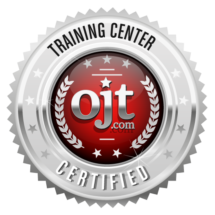
INDUSTRY-LEADING LIVE
INSTRUCTOR-LED TRAINING
World Class Training Content, Delivered On-Demand
BRIDGING THE GAP
between career seekers
& employers
from COAST-TO-COAST

World Class Training Content, Delivered On-Demand
between career seekers
& employers
from COAST-TO-COAST
Mechanical Engineer
QUALIFICATIONS
“A” Levels in Maths and physical science (Physics, Biology or Chemistry), a professional Mechanical Engineering degree like B.E. or M.E., through a school of an engineering program accredited by the Accreditation Board for Engineering and Technology (ABET); accompanied with the experience requirement and passing the Fundamentals of Engineering (FE) and Practice of Engineering (PE) examinations for Licensure candidates; Engineering certifications like the Certified Manufacturing Engineer (CME) from the Society for Manufacturing Engineers, the Certified Reliability Engineer (CRE) from the American Society for Quality, etc.; encompassing at least 4 to 6-year requisite study and practice credit hours in the area or field of Mechanical Engineering; combined with – On the Job Training (OJT) programs, Apprenticeships, Mechanical Engineering Workforce Job Training or Experience; covering mechanical engineering work topics including Engineering fundamentals, concepts and principles, and depending on the field of specialization, related subjects like; planning and 2D & 3D engineering, product and manufacturing design, mechanics, Computational Fluid Dynamics (CFD), Finite Element Analysis (FEA), computer graphics, draft, design & engineering or CAD/ CAE software and software systems, math, physics, chemistry, biology etc.; knowledge of engineering analysis tools like ANSYS and ProMechanica, Mathematical computing, and analysis tools like LabView, Matlab, Excel, etc.; other apparatus, plant, machinery, equipment and standards, quality control and materials, prototyping, testing, lab experiments & workshops, statutory mandates, and safety protocols, Project proposal, planning, design, development, practice, management, & documentation. An MBA or a Post Graduation in Science, Technology, Engineering or Mathematics (STEM) or a Master’s Degree in Mechanical Engineering will be an added plus.
AVERAGE ANNUAL PAY
(Credits: www.payscale.com)
| Entry-level (0-12 months) | $ 63,121 |
| Early career (1-4 years) | $ 68,771 |
| Mid-career (5-9 years) | $ 80,154 |
| Experienced (10+ years) | $ 91,578 |
PROJECTED GROWTH
(Credits: www.bls.gov)
Mechanical Engineer is an exciting career, in which employment is expected to grow at a steady 4 percent from 2019 to 2029.
SKILLS/ TRAITS NEEDED
Besides mechanical engineering and/or management qualifications and skills, the Mechanical Engineer needs to be “hands-on”, self-driven, result-oriented with strategic, creative, critical, and lateral thinking; a methodical approach, structured thinking & planning, analysis to design technical solutions, evaluation & testing mechanical prototypes, visualizing, computation and problem-solving skills, and strong scientific aptitude; in-depth knowledge of the field mechanics, products, machinery, systems, operations, processes, procedures, techniques, technologies, draft designs, plans, blueprints, diagrams, materials, sustainability, standards & best practices, the statutory and safety protocols, project management and documentation. Ability to work under pressure, extreme focus, memory, attention to detail, math & technical acumen and computer software knowledge, strong written and verbal communication, time management, prioritization, reporting, inter-personal & soft-skills, memory, patience, and perseverance, are the vital ingredients of a successful Mechanical Engineer.
WORK FUNCTIONS
Mechanical Engineers carry a broad spectrum of responsibilities which could be inter-disciplinary; from the initiation, and end-to-end product development cycle and industrial maintenance; including designing, developing, creating and testing mechanical prototypes for products, components, engines, turbines, refrigeration & air conditioning systems, power-producing & consuming machinery and manufacturing equipment; creating specifications, designing, developing, installing, measuring performance and maintaining mechanical components or systems for safety, reliability, smooth operations and robustness; till final implementation, deployment, and commissioning; these could broadly involve requirements gathering, evaluating, proposals, contracts, preparing technical specifications, drawings, designs, planning, controlling, ensuring quality standards, and compliance to technical specs; supervising, coordinating, and managing activities, procurement, controlled experimentation, implementing best practices; adhering to codes, guidelines, regulations and safety protocols, environment protection, quality assurance and quality control (QA/ QC) and cost-optimization; planning and prepping, reviewing work progress, technical inspections, site or client visits, oversight and status reporting, risk management, equipment & materials procurement, maintenance, and organizing operations. Apart from this, they also design and develop processes, policies, and procedures, obtain statutory approval, liaising with authorities to ensure smooth operations, and lower costs; identifying and resolving technical pain points, and implementing strategic, cost-effective, innovative, and robust solutions. Besides, they may also additionally be responsible for the team and people management; including recruiting, training, coaching, mentoring, delegating, and appraising labor and employee work performance, hiring and handling contractors, cash flow and cost control, preserving assets, facilitating technical or engineering audit, technical and status reporting, and documentation. They may also contribute towards marketing and sales support, organizational policy frameworks, besides leading the efficiency and costs savings goals of the organization through meticulous planning and execution, aligned to the organizational goals. They may sometimes be needed to work in shifts.
Related Careers